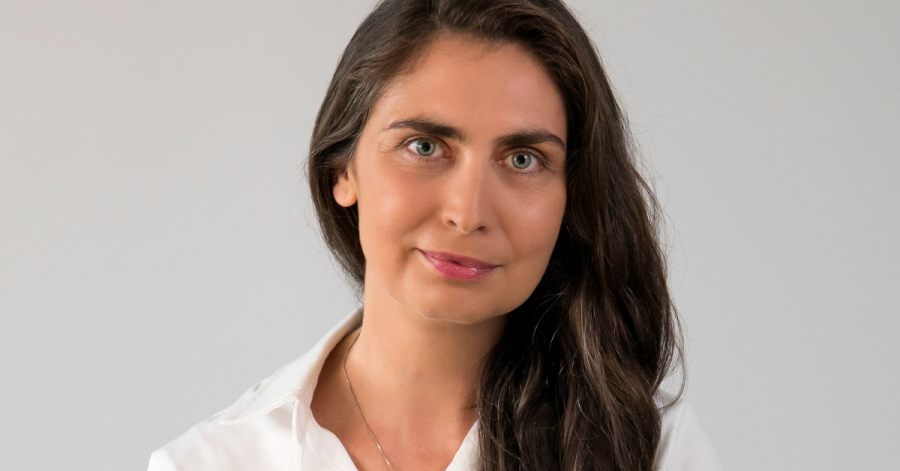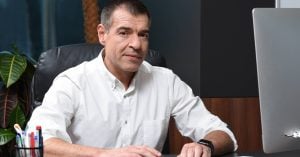As a tech leader, are you moving fast enough? Looking for and grabbing new opportunities for growth in the new digital economy? Building and trusting your network? And how about giving your people enough freedom, while helping them self-actualize? In today’s interview, we unpack tech leadership priorities and best practices with Elena Marinova, President of Musala Soft, a software service company with offices in Bulgaria, North Macedonia, and Egypt, which was recently acquired by Czech company Aricoma, part of the KKCG group.
Below, Elena Marinova shares the trends and opportunities that lay ahead for tech leaders, as well as the practices, mindsets, and approaches to solving challenges that make up a good leader. According to the President of Musala Soft, tech companies are in a good position to recover fast from the latest “black swan”, as they offer solutions to a world that wants to become more intelligent and connected.
The Recursive: What does a day in your role as President of Musala Soft look like?
Elena Marinova, Musala Soft: While at the (home) office – back to back meetings or calls, switching from one topic to the other with different people – internal, clients, partners.
When I am traveling, which is happening a lot, taking the most of the day, sometimes having multiple breakfasts, lunches, and dinners. Of course the fun part is never forgotten – I have the tradition to explore the cities I am visiting by night after it is no longer polite to have business meetings – sometimes on my own, sometimes with friends, who I have around the world.
Mornings and late evenings are to catch up with emails. Flights and trains (I love trains) give me the time to think and focus without being disturbed and answer questions. Overall – it’s never boring and I love it!
How do you define leadership?
Truly caring about the people you work with and giving them the freedom and support to reveal their best while navigating onwards and upwards with words but most important – with actions.
What are the building blocks of creating a strong executive team?
Finding complementary people and focusing on everyone’s strengths and passion while compensating for their weaknesses with the other team members. Having a common goal, which is a journey, not a static point, and communicating it. Perfection is achieved when on top of all these, there is trust, respect, and a constant clash of ideas at the same time.
Which are the main practices and mindsets that have helped you in your leadership role?
As a woman, multitasking is unavoidable, so I mastered it. Delegation, too. I do my best to be there in difficult times and step aside when things can go smoothly without me, or someone else wants and can take over. Intuition helps and it rarely turns me down. Last but not least – although numbers are not my thing, I love having quality data.
Tell us about a crisis that you faced. How have you dealt with it?
Little bumps on the road are part of the routine, as someone said “if everything is under control, you are not moving fast enough”. 22+ years in business with Musala Soft, still our biggest crisis was one year after we started the company – after the .com crash in 2001.
At that time our clients were Silicon Valley startups. The crash was devastating for both them and us; we were left with just one small European client.
What saved us was … gambling. A friend of a friend of a friend was a world champion in poker and a rich friend of his wanted to build an online poker, at that time an almost empty niche. We worked on the poker site that was never launched (for totally unrelated to the technology reasons) for a year which allowed fate the chance to make IBM to acquire our small European client and select us as a vendor. From there on, it’s history.
This taught us a few valuable lessons we apply till today, among which: diversify; grab the opportunities; build and trust your network – sooner or later it will be your safety net; no matter how hard you work, you need a little bit of good luck.
What changes has the recent acquisition brought in terms of leadership of the company? How has it been leading the company throughout and post-acquisition?
M&A negotiations are quite a lonely job – although you are surrounded by consultants, you keep it all in a very closed circle. At some point you turn out to have two jobs – one running the company and the other, stealthy role – negotiating the deal. It is exhausting on many levels but at the end of the day a good learning experience and in our case – with a happy end.
We closed the M&A deal on 1.1.2022 and are now part of the 9+ billion KKCG group – this is a financial back-up that can support creative ideas and bold plans. The IT part of it – Aricoma – is now a 4000 people company which puts us among the next gen digital transformation leaders in Europe. The ambitions are global with the first steps already made – for example the Musala Soft operation in Egypt.
The deal is in the environment of more leaders from the sister companies, and having more peers multiplies the opportunities. Thus, even though Musala Soft is keeping its operational independence throughout 2023 and 2024, we have already started exploring best practices and synergies on a path for integration and a planned IPO in 2025-2027.
As a leader of a software company, what are the key trends that you will be following closely in 2023?
“Rollercoaster” is the word that will perfectly describe the IT sector in 2023. I am an optimist and my expectations are that at the end of 2023 we will board the high-speed train – first the USA and then Europe. Just like till now, the sector will be almost immune to the natural economic cycles and will recover fast from the “black swans” – be it .com crash, financial crisis, COVID, stagflation, or whatever the future brings.
The development of the IT companies in 2023 will be mostly influenced by: the uncertainty – it will lead to a change in the mode of operation; the shortage of people – a chronic deficit together with the beginning of a long-term shift of the demand to more qualified personnel; the digital transformation – the world will continue to become more digital, the shortage of qualified people across industries will continue to grow, and, as a result, the budgets for software solutions will continue to grow despite the expectations for global crisis.
The grand 2023 tech trends that are no surprise are connectivity, cloud (everything in the cloud) and data (big data, analytics, AI, ML). Here will be the biggest, most consistent and high budget projects across industries and geographies. We will see breakthroughs and the beginning of mass implementations triggered by tech developments that will be visible in our everyday life – from robots and personal assistants through healthcare and education to the industry, especially transportation. AI will become an integral part of our day to day; cars, homes, shopping, and many other things will become smart and connected; almost every surface will be or will be able to turn into a screen and keep us informed, entertained, and safe.
We will also see developments in the current mega hype – the metaverse – making it more suitable for business and personal usage. Of course, we are all curious to see the Crypto Phoenix rising, too. None of these are new, but 2023 will be the year of their mass, more human friendly, ambient, intelligent presence. For the next years to come, glitches in design and usability will disappear to allow everyone to be effortlessly digital, even the skeptics, even the elderly. Now is also the time for the preparation of the big appearance of technology with a heart, not only brain.
Finally, the “profit-people-planet” balance is here to stay as a whole new stable trend. It will become part of the agenda of all analysts, companies, and governments, and will influence the development of businesses and nations. At the same time, „greenwashing“ is the new hype in fake news.
What do you think about reshaping capitalism to include social and environmental impact, and how do you contribute to that?
As already stated – it is happening.
A bit more specifics from Musala Soft and me personally – we have been devoted to focused CSR since the company’s inception. Although business results are rewarding, I would not feel whole if we did not have social impact. We have been partnering with tens of academic institutions, NGOs, government bodies, industry associations, like-minded companies, and individuals to grow the IT community where we operate and develop our future through education. My favorite initiatives among the hundreds we have had are CodeIT and eJOI. The international algorithmic competition CodeIT by Musala Soft is now 22 years old, making it the oldest private contest in programming in the world. The European Junior Olympiad in informatics (eJOI) was founded in Sofia in 2017 by 4 individuals, including myself and was then hosted by Russia, Slovenia, Romania, Georgia, and Ukraine in 2022 with participants from more than 25 countries.
So yes, I believe we should build a more caring, more connected world with less (not moving) borders, and a forward-looking approach. Still, we should be very careful not to slip into populism and artificial, counterproductive, impractical regulations, and quotas.
What does Musala Soft bring to the market, and what are the core technologies behind?
Musala Soft has been a software services company since our inception on April 1, 2000 (yes, the date was selected on purpose). What we are best at is providing fully-fledged competence teams of tech and domain experts, taking responsibility for a project or a segment of it in the cases of the huge ones.
The majority of our clients are big multinational organizations spread around the globe but mainly in Western Europe and North America; among them are names such as IBM, SAP, Vmware, Volksvagen, eDAG and MAN, Procredit Bank, Commerzbank, DSK of OTP Bank, Generali, A1, Telenor etc., as well as a few super-interesting scale ups. We are a long-term partner and an advisor for many of them with relationships as long as 20+ years, and 10+years on average for the top 10 clients.
All this said, in a nutshell: we work on business critical and curious projects for many of the innovation divisions of our clients and we enjoy the ride with great musalenians!
What are your goals in 2023?
We will stick to our 20% growth plan and high quality client portfolio. We will expand our talent pool, open development offices, and strengthen our connections with current and potential clients. As for the services we offer, we will keep growing the main domains where we are in for a reason: from a tech perspective – Cloud, Big data & AI, QA automation, and IoT, and from a business – finance, telecom, and automotive. Last but not least, we will continue investing a lot in our people and in the environment where we operate.








